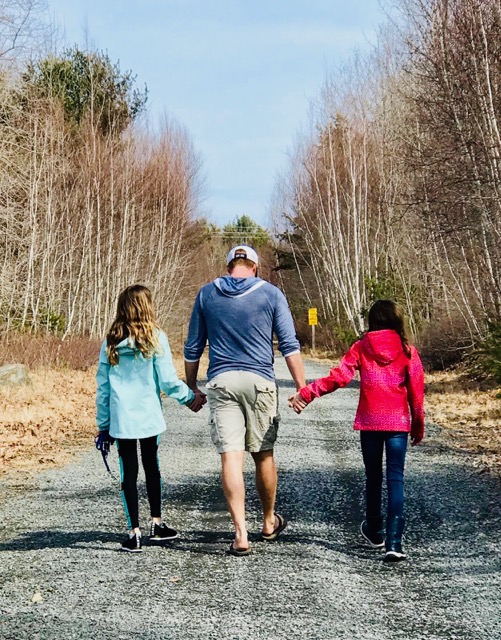
-
When I was a young boy, I loved September. And it wasn’t because the leaves were changing colour or because of the crisp smells in the air. It was because the first Monday of October was near, and the first Monday of October was the opening of bird hunting season in Nova Scotia.
On that day, I knew my dad and I would take off from school and work, and we would be up at four in the morning, in the truck and heading to the woods. We’d have our sandwiches and our soup, and we would spend fourteen hours together, in the apple orchards and surrounding woods walking around looking for our quarry, having lunch together and shooting a partridge or a pheasant if we saw one. In the traditional sense, I would be learning from Dad during this time, and I would be learning the basics of manhood. We were father and son, in nature,
hunting for our supper for that weekend, and I loved it.
That thrill carried into deer season and then into rabbit season and even into Christmas, Dad’s favourite holiday. October through December was the best time of year for me because I got to spend time with my dad.
When I was growing up, I didn’t care how nice of a house we had, how nice of a car we had, how much money we spent, or even how often we went on vacation. What I cared about most was spending time with my dad. He was a busy, working man who had a deep desire to make his mark, provide for his family, and feel valuable in the world, and that made it difficult to get in time with him. So I coveted it. I coveted every bit of time I could get with my dad, and I miss him every single day.
His name was Wayne Lewis, and he was bigger than life. He captured people’s attention in a gregarious way, and he had a vibrant personality. He was light-hearted, too, and he knew how to have fun. He could shift gears from “work mode” to “fun mode” better than anyone I’ve ever known. And when he was with you, you knew you had his attention 100 percent! My dad was a hard-working businessman with great integrity. I saw him suffer in business because he wouldn’t follow other men in their weaknesses.
Instead, he did whatever was right, and he was extremely generous. He was fearless, too. He was never limited by fear but instead faced it head-on. I think it was a tremendous demonstration of his masculinity.
Not in a beat-your-chest kind of way, but in a personally triumphant kind of way, saying, “This is what I am trying to achieve. Fear will not stop me.” He demonstrated that all the time, and it never did.
Most of all, my dad was committed to his family. He loved us all very much, and that’s important to say, because he didn’t have that kind of loving up-bringing. My grandfather was a WWII vet. He fought with the Canadian infantry throughout the Italian and European theaters of war with the British forces, and he saw some horrific events that led him to suffer PTSD. As a result, my dad grew up in an abusive home. Like many men who came back from that war, my grandfather didn’t know how to deal with it, so he turned to alcohol, and alcohol turned into violence in the home and, being the oldest brother of three, my dad got the worst of it.
Even still, my dad was forgiving, and I realize now that was a deliberate choice. It was also a demonstration of real character. He was deliberate about loving his father and recognizing that his father was damaged and that wasn’t necessarily who his father really was. So he loved him anyhow.
Then, when my dad had a family of his own, he wanted to break that cycle of abuse, and he did— with mixed results. There was physical abuse in my home growing up. When my dad was under a lot of stress, I learned to stay clear of him. I can remember my uncle saying they had a “sneakers on” rule growing up because they never knew when “the old man” would come home drunk. I adopted the same “sneakers on” rule of thumb with my dad when he was under the gun. The physical abuse was limited—I can count on one hand the number of times I experienced hard, physical abuse—and it was only me, never toward my sisters. On the contrary, they grew up very different. My dad really poured into them, nurtured and loved them completely, and I think growing up with a mother who was abused was the reason for that. For me, it was more verbal abuse, but I know my dad simply wanted to live vicariously through his son and see me do more than he ever had the opportunity to do. So he was tough on me, but I still always felt loved. He used to give me a light backhand and say, “That’s for nothing. Wait until you do something.” It was his way of saying, “I love you.” He never said “I love you” to me, but he had his own way of demonstrating it. And I knew he did.
-Jonathan Lewis
Available on Kindle and through Amazon.- ISBN-10: 1945255862
- ISBN-13: 978-1945255861




Leave a Comment